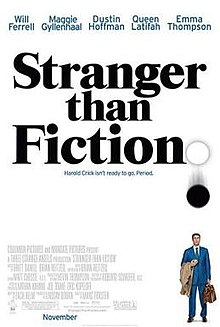
Intimacy in the sewers followed by fantasy in the gods, and then, total silence. As he flees England to France in the wake of his release from prison, Irish playwright Oscar Wilde (Rupert Everett) tries to reestablish his life, finish his writing work and disdain his lover Lord Alfred ‘Bosie’ Douglas (Colin Morgan) whose father the Marquis of Queensberry had him gaoled for his homosexuality following a libel suit. All the while he is hounded by the press who have made his life a misery in a society whose denizens once enjoyed being sent up by him but which are now all too happy to shun him. He is assisted in exile by his literary executor Robbie Ross (Edwin Thomas) and loyal friend, journalist Reggie Turner (Colin Firth). But when his identity is revealed to a hotel proprietor following a fracas with bullying English tourists, he is obliged to take up residence in Paris where he slides into dissolution, corresponds with Bosie and is cut off by his wife Constance (Emily Watson) on the advice of her solicitors… There is no question that Everett achieves something rather special here: he inhabits Wilde with the kind of comfort that can only come from someone who has long shepherded this project as well as playing him a number of times on stage; the acknowledging that Bosie was truly Wilde’s Achilles heel – he simply cannot resist the nasty little bugger, a beauty, a nauseating irresponsible temptress in male clothing, a sop to Wilde’s vanity. He is his downfall and he is simply irresistible. Everett doesn’t spare Wilde physically either – bloated, drugging and drinking, wearing rouge, he’s a braggart whose survival depends on his wit yet he says he found God in gaol: in that cell there was only himself and Christ. He has lost his strength yet he musters a violent thug within to confront holidaying yobs who recognise him in France: that their showdown occurs in a church is a nicely Wildean touch. He finishes De Profundis; he tells the story of The Happy Prince both to his sons in flashback and to the two street boys he befriends in the Parisian underworld. The multi-faceted backwards and forwards in time structure should confuse but doesn’t because the focus is all on Oscar: and Everett is savage as appropriate. This is a self-inflicted theatrical exit, fuelled by lust and blind obsession, invariably leading to terrible pain which he seems unable to stop. We are watching a great writer decompose, in all the senses that that term might conjure. There are all kinds of second-tier attractions: the mood of melancholy offset with famous bons mots and rueful self-examination; the locations; the portrayal of male friendship and loyalty; the hypocrisy writ large even within Oscar’s own worldview because he tells people what they need to hear even when everyone concerned knows it’s not true (Ross truly loves him and Wilde loves him back, just not in the same way); his thoroughly wistful longing to see his small children again which grieves him terribly; Everett’s old pal Béatrice Dalle (from Betty Blue) turning up as the proprietress of a risqué bar; the interweaving of onstage characters from Wilde’s plays with his real-life associates; the wondrous score by Gabriel Yared. Frisky, fruity and just a little salty – rather like the man himself. It’s a heartbreaking and profoundly literary valentine, wise and witty and immensely good. What a debut for Rupert Everett, film writer and director. Surely Love is a wonderful thing






